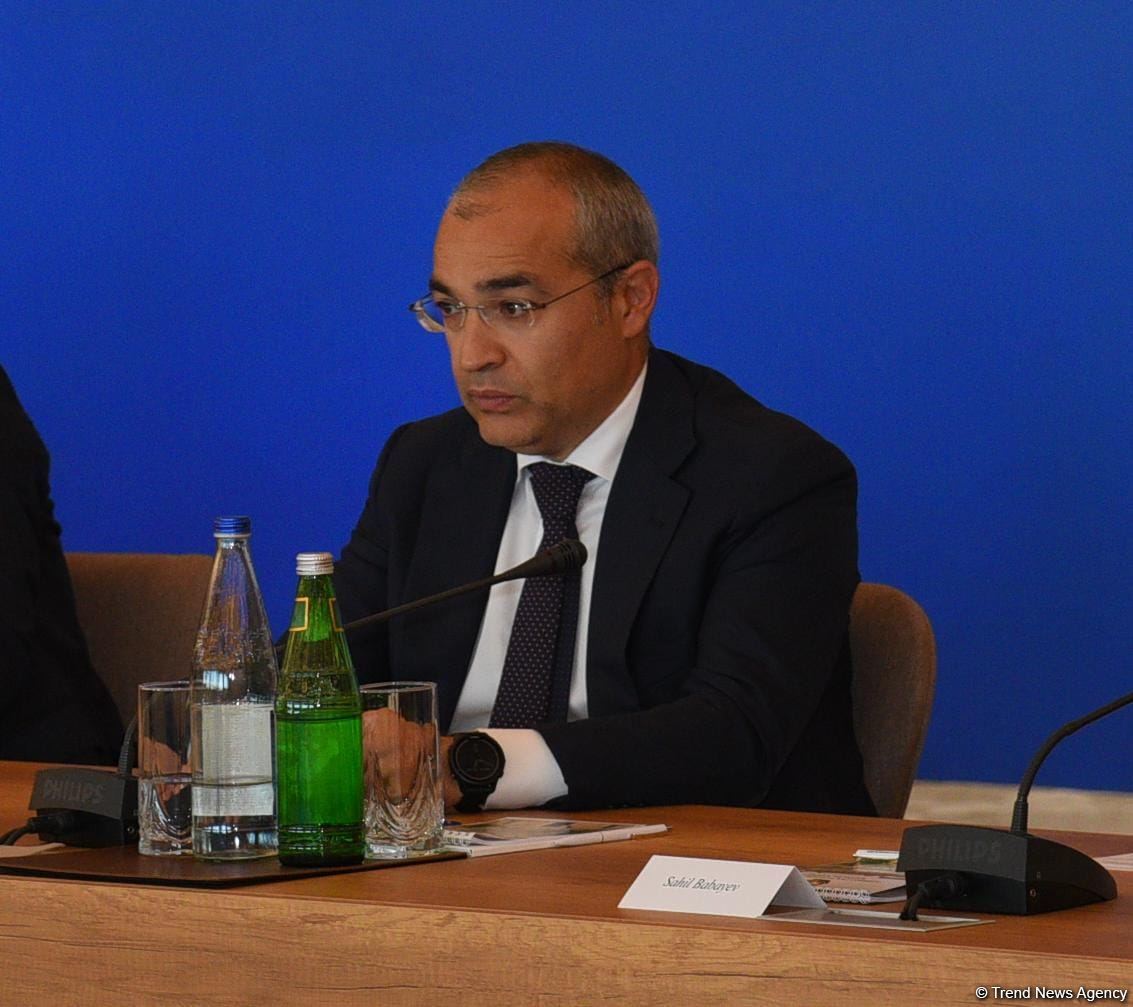DUBAI, UAE, December 2. Environmental sustainability has become a focal point in Azerbaijan's development strategy,
said Azerbaijan’s minister of economy Mikayil Jabbarov at G77 and China leaders summit in the framework of COP28 in Dubai, UAE, Trend reports.
“Today, the world is facing challenges towards achieving the priorities set in the international initiative on climate change. The enduring impacts of the COVID-19 pandemic, compounded by climate change, water scarcity, food insecurity, inequality, and poverty, pose formidable obstacles to the transition to a green and sustainable economy,” he said.
Jabbarov noted that since the adoption of global initiatives, Azerbaijan has demonstrated a firm commitment to their universal promotion and the implementation of the climate initiatives and the 2030 Agenda.
“The commitment to fostering transformative changes reflects a dedication to reshaping the national economy with a focus on sustainability, inclusive growth and clean energy. Additionally, remodeling economies requires effective and sustainable financial sources globally. For that reason, it is crucial to establish networking platforms to explore opportunities for private sector investors making a positive impact on accelerating green growth,” said the minister.
Jabbarov noted that over the last two decades, Azerbaijan has experienced a remarkable economic transformation, evidenced by a threefold increase in GDP.
“Notably, the country achieved a substantial reduction in poverty, dropping from 49% to an impressive 5%. Furthermore, Azerbaijan stands out globally with an exceptionally low external public debt, expected to be around 10% of GDP in 2023. Environmental sustainability has become a focal point in Azerbaijan's development strategy, with a commitment to a clean environment and green growth emerging as one of the top five priority areas. This strategic emphasis aligns with global efforts to balance economic advancement with ecological responsibility,” he said.
The minister pointed out that as a driver of the green energy transformation, renewable energy sources will constitute 24% of the installed capacity for electricity generation in Azerbaijan by 2026, with a more ambitious target of reaching 30% by 2030.
“Additionally, Azerbaijan aims for a significant reduction of greenhouse gas emissions by 40% by 2050. This includes the establishment of a green energy zone in the liberated Karabakh and Eastern Zangazur regions from 30 years occupation of Armenia, contributing to the implementation of the commitments on climate change,” he said.
He went on to add that Azerbaijan acknowledges the crucial role of demining initiatives in fostering sustainable development and facilitating green transformation.
“Recognizing the substantial impact of demining on the wellbeing and advancement of the region, as well as its broader significance for our country's development, humanitarian demining is formally designated as the 18th National Sustainable Development Goal in Azerbaijan. Last but not least, I would like to highlight that the shift to a green economy is not optional, it is imperative. It signifies a dedication to a future where economic prosperity and environmental well-being are intertwined. Let us collectively forge a path towards positive change, shaping a world where economies flourish, ecosystems thrive, and future generations inherit a planet abundant in beauty and resources. The time for a green economy is now, and the responsibility lies with each of us to transform this vision into reality,” he concluded.







